BMW unveils ByBorre-designed interactive textile interior
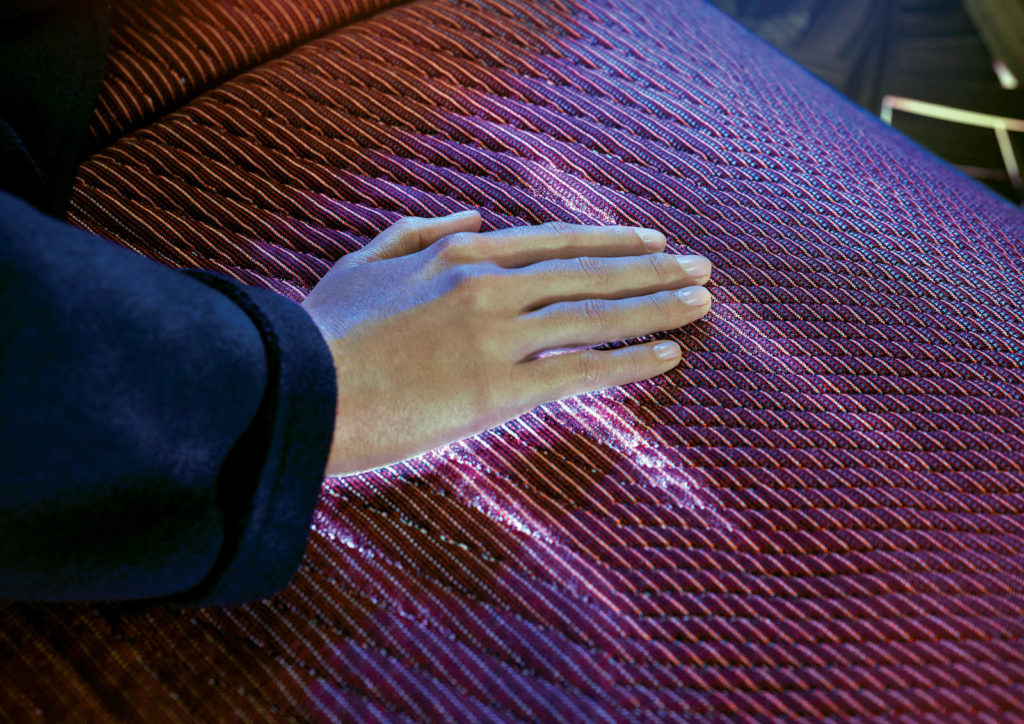
Dutch custom textile manufacturer ByBorre developed the fabrics for BMW’s future interactive car interior presented at this year’s Consumer Electronics Show (CES) in Las Vegas, Nev. The concept car cabin module donned the BMW i Interaction EASE, the car company’s expression of the “mobility experience of the future” where autonomous driving is more commonplace. With knitting machine manufacturer Mayer & Cie, ByBorre collaborated with BMW to create the seamless interactive tactile surface by developing custom textiles from raw, sustainable yarn, up to custom colors and artwork. The cabin’s interior upholstery was turned into a tactile three-dimensional knitted surface interface, with the embedded smart materials offering passengers an integrated, naturally intuitive and interactive experience of control and demand over the car’s interior. Photo: ByBorre.
Transparent masks for better communication
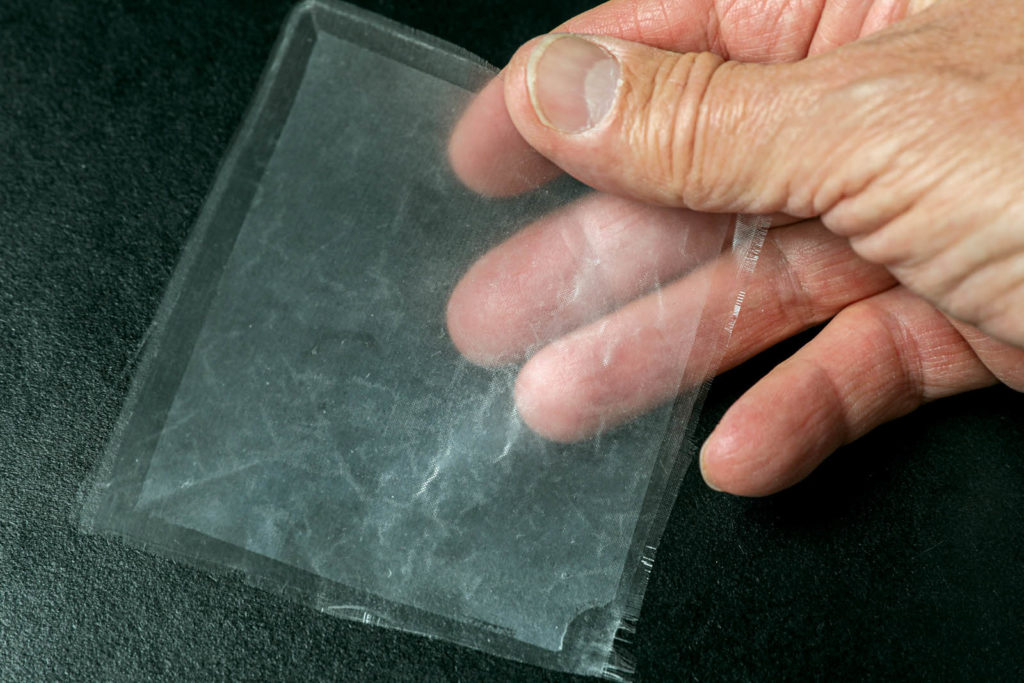
The COVID-19 pandemic has shown that face masks are problematic for health-care workers who treat Deaf and hard-of-hearing patients. Now a team of researchers from the Swiss interdisciplinary research institutes EMPA and EPFL’s EssentialTech Center have developed a completely transparent surgical mask. Called HelloMasks, the product is intended to make contact between caregivers and patients less impersonal and improve communication. Understanding a person with a partially hidden face is difficult; the sound may be muffled, and reading complete facial expressions is a challenge. For children, Deaf or hard-of-hearing patients, masks are an even bigger obstacle. Researchers spent two years finding the right combination of transparency, resistance and porosity. The membrane is made from a polymer that’s 99 percent from a biomass derivative. The masks are also disposable for optimal efficacy. Photo: EMPA/ EPFL.
LOOMIA recognized for “World Changing Idea”
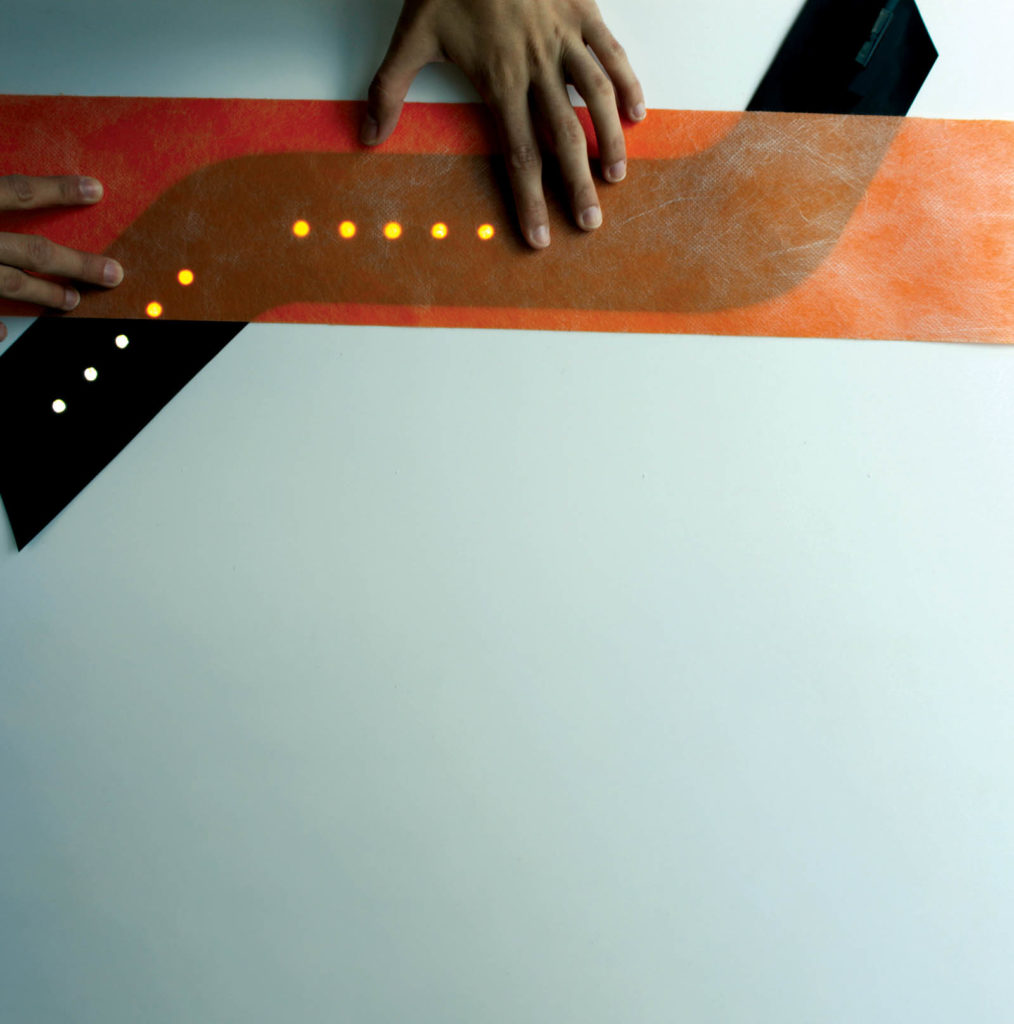
E-textile innovator LOOMIA was awarded an honorable mention in two general categories by Fast Company and its World Changing Ideas for 2020. The award honors products, concepts, companies, policies and designs that pursue innovation for the good of society and the planet. With offices in New York City and Palo Alto, Calif., the company designs and manufactures soft circuit systems (e-textiles) that can be manufactured at scale. The LOOMIA Electronic Layer (LEL) has been recognized for its ability to add a variety of sensing and temperature functions to automotive interiors, medical and wellness wearables, and outdoor goods. The LEL is scalable and can be customized to fit any surface area. Photo: LOOMIA.
Accel Lifestyle offers antibacterial masks
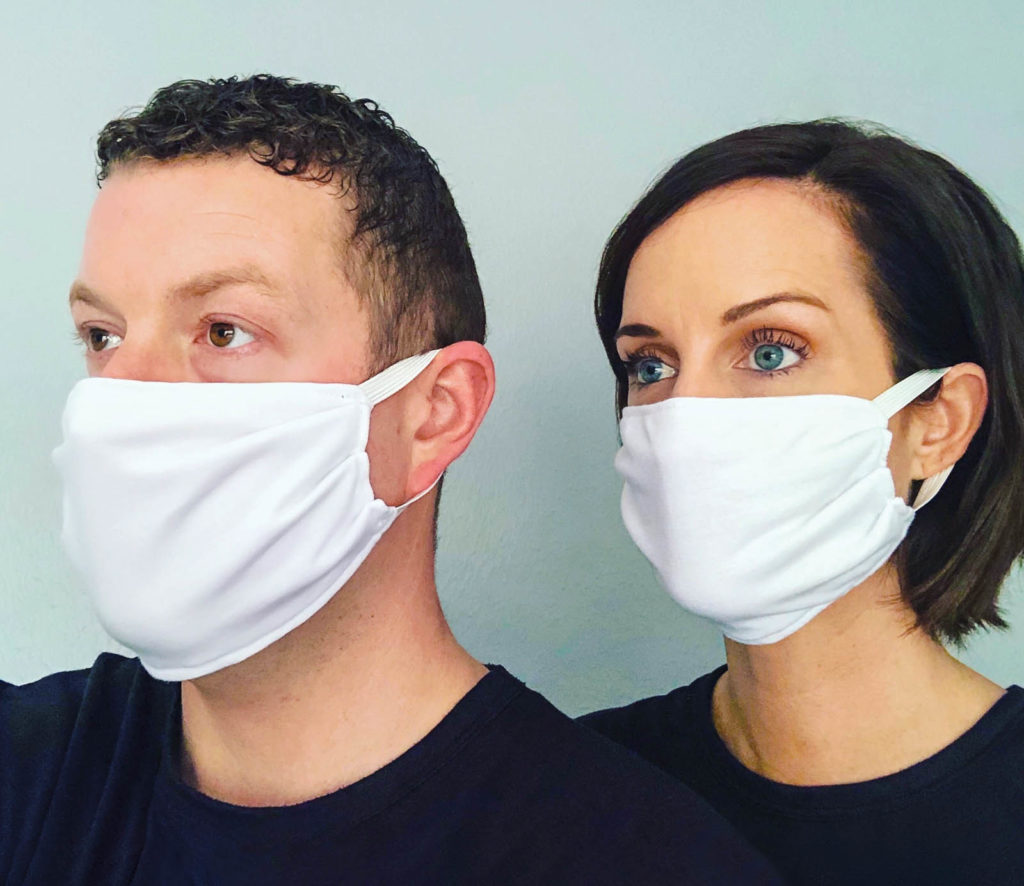
Fitness apparel company Accel Lifestyle is using its antibacterial Prema® fabric to manufacture Prema® antibacterial and reusable face masks. The company says the masks have two layers of Prema fabric and offer excellent breathability. The product was initially intended to be a non-stink fabric for athletic wear. It uses a proprietary blend of silver-poly fibers woven with Supima® cotton. Tests have shown a 99.38 percent reduction rate of Staphylococcus aureus and a colony reduction rate of 97.44 percent of Klebsiella pneumoniae, even after 100 washes. Although it’s not an N95 mask, it can help provide some level of protection against COVID-19, according to Accel CEO Megan Eddings. Photo: Accel Lifestyle.
Bioservo’s grip-strengthening glove gains support
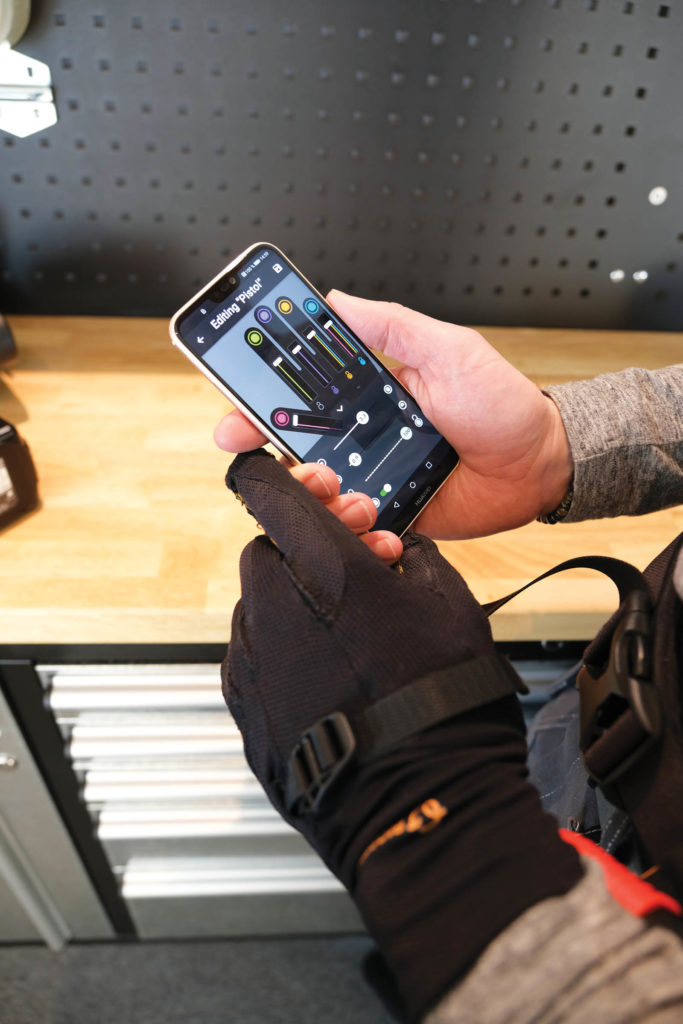
A new study has been published that shows the positive effects of using a Bioservo Technology AB soft robotic “Ironhand” glove to strengthen the grip of the hand. The study, involving people with multiple sclerosis (MS) or who have had a stroke, was conducted in a collaboration between the Karolinska Institutet Department of Clinical Sciences and Danderyd Hospital, Division of Rehabilitation Medicine, Stockholm, Sweden. The most striking improvement for the patients tested was their ability to hold onto an object for a long time with a firm grip. The Ironhand system consists of a glove and power pack worn in a backpack or hip-carry. Via a remote control or an app, the operator can adjust the force, the balance between the fingers, the sensitivity, locking and other settings. The Ironhand system and its non-commercial version, Robo-Glove (developed by NASA and General Motors), won the NASA Commercial Invention of the Year Award for 2020. Photo: Bioservo Technologies AB.
 TEXTILES.ORG
TEXTILES.ORG


